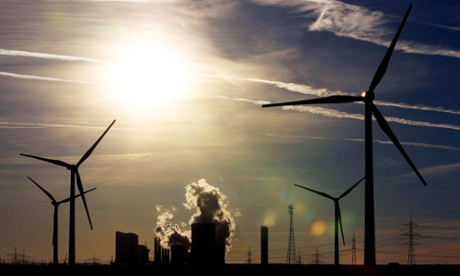The Australian Senate’s declaration last month that climate change is a “current and existential national security risk” was clearly intended to inject much-needed urgency into the country’s climate policy stalemate. Bringing together the unusual bedfellows of military generals and environmentalists to warn about the dangers of climate change, it has the possibility to break though Australia’s culture wars on the issue. However, by framing climate change as a security matter, it also has significant consequences in shaping how we respond to a warming planet. As the climate crisis unfolds, is the military the institution we want to turn to for solutions?
The Australian Senate inquiry was initiated by the former Greens senator Scott Ludlam and heard from diverse actors, including humanitarian agencies and defence strategists. It examined the likely impacts of extreme weather on military infrastructure, the economy and the wider region. It concluded that “climate change is exacerbating threats and risks to Australia” and called for improved military preparedness, better studies of “risks” to Australia, and enhanced coordination between government agencies.
In this, Australia is following a well-worn path forged by the European Union and the United States. The Pentagon in 2003 was the first to talk about climate security, framing climate change as a “threat multiplier” that would exacerbate conflict, terrorism, mass migration and social instability. In 2008, the EU concurred saying that global temperature increases of more than 2 degrees (current predictions suggest we are heading for more than 3 degrees) would “lead to unprecedented security scenarios”.
Security is a modern day weasel word – who can be against security? The question rarely asked is whose security are we talking about - security of what, for whom and from whom? The US, EU and now Australian strategies, though, clearly state they are talking about the security of their respective nations in the face of “threats” usually coming from the consequences of climate change in neighbouring countries.
The submission from Australia’s Department of Defence to the inquiry put it this way: “When climate impacts are combined with ethnic or other social grievances, they can contribute to increased migration, internal instability or intra-state insurgencies, often over greater competition for natural resources. These developments may foster terrorism or cross-border conflict.”
They argued that this “could lead to an increase in the demand for a wide spectrum of Defence responses including maintaining law and order following disasters”. The image they paint is a dystopian one, which assumes that climate change disruptions will lead to a dog-eat-dog world, causing conflicts and wars, and prompting millions to migrate – and this will require the military to deal with the ensuing chaos.
The effect of this approach is to turn the victims of climate change into potential threats and to make a militarised response to the impact of climate change the default response. The Australian Senate report is more nuanced than some US Pentagon reports in advocating for a range of strategies, including additional climate finance and better disaster resilience planning.
But by blurring the distinction between the military’s ideas of security and other “human security” approaches, it embraces and reinforces a military response to climate change. This can be seen in the report’s strong appeals to the military to expand its role in disaster relief, even though this typically is the most costly form of relief and can end up militarising humanitarian disasters as the world witnessed graphically in New Orleans in the aftermath of hurricane Katrina where deployed National Guards ended up shooting at flood victims.
The Senate report has less focus on the way the impacts of climate change will vary dramatically depending on the level of poverty and vulnerability of the affected community. Nor does it challenge the economic structures or laws that have led to this inequality and vulnerability, such as the role of Australia’s trade policies in undermining rural livelihoods and disrupting food systems. This is not surprising. After all, the essence of “security” is to secure what already exists. This means securing a world order in which Australia’s per capita income is 25 times that of nearby Kiribati or Solomon Islands and where even in Australia 2.9 million people live under the poverty line. It is an approach that seeks to build walls to exclude the dispossessed rather than tackle the underlying causes that cause people to migrate – shown today most visibly in Australia’s inhumane treatment of refugees in Nauru.
Australia’s experience of unprecedented heat waves and fires in recent years has already shown that climate change will have a big impact on the country and the wider region. But how those impacts play out will depend to a great degree on how we choose to respond. An approach that relies on military forces and barbed wire will worsen the crisis and create a world no one wants to live in. Real security emerges from recognising our interdependence, tackling injustice and inequality, and working together to protect those who are most vulnerable.
• Nick Buxton works at the Transnational Institute based in the Netherlands and is co-editor of The Secure and the Dispossessed: How the Military and Corporations are shaping a climate-changed world (Pluto Books, 2015)











